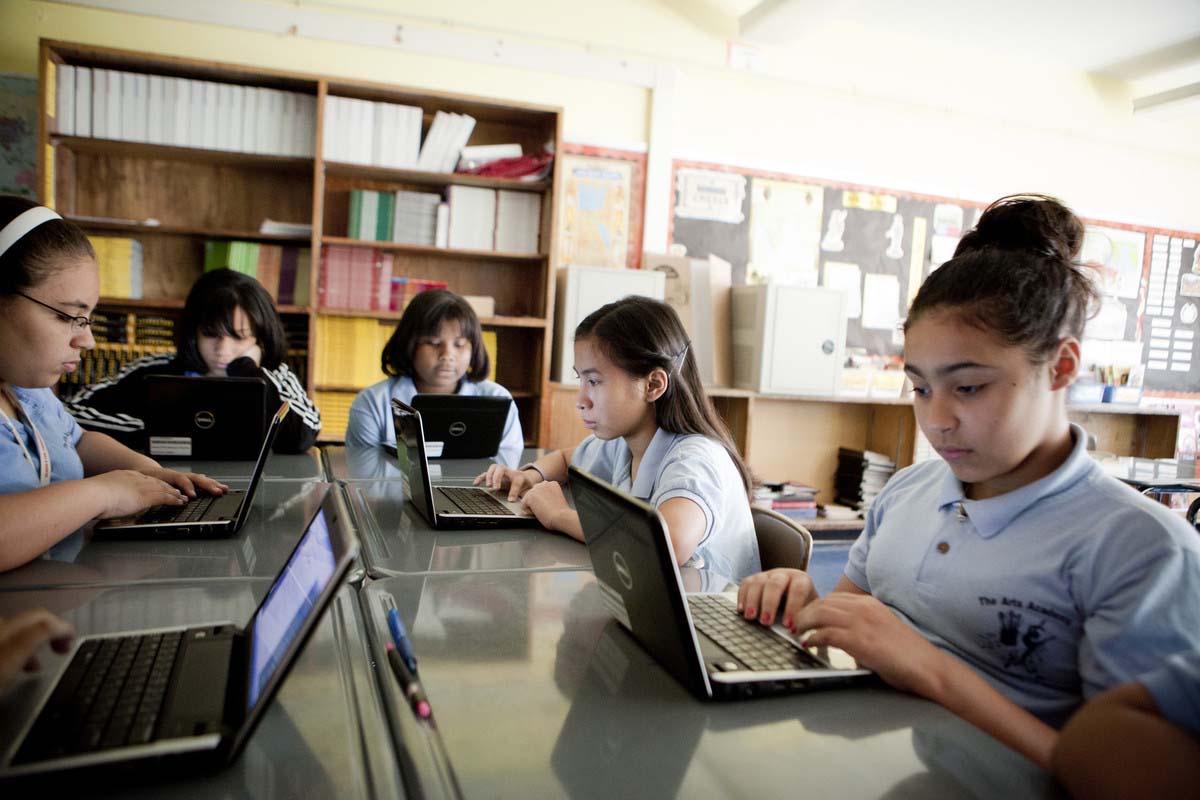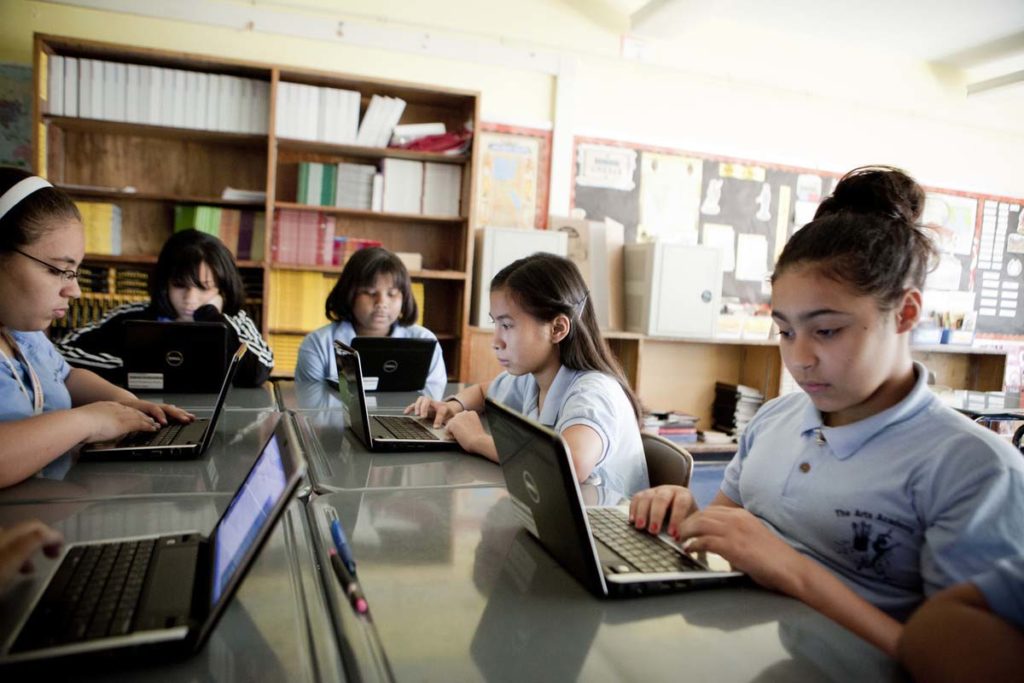Roughly four years ago, we wrote a post on the importance of investigating effective approaches, practices, situations, tools, and materials to foster girls’ math identity. At the time, we intended to conduct a systematic review of the literature to better answer how promoting math identity in girls supports their participation, engagement and achievement in math. Since then, we have submitted several blog posts highlighting our journey and preliminary discoveries, and now we are pleased to report that findings from our review were recently published in the International Journal of Mathematical Education in Science and Technology. In this post, we focus on one key takeaway – the power of belonging in the development of a positive math identity – and share additional insights beyond what was included in the paper.
Operationalizing Math Identity
We believe that there are two key pillars of positive math identity. First, the belief that a person can do mathematics, and second, the belief that a person belongs in mathematics.
Our approach to math identity is informed by several theoretical frameworks that address questions like how girls see themselves as doers or learners of mathematics; the beliefs, attitudes, and dispositions they have regarding mathematics; the social process and shared experiences individuals they develop; and the extent to which they are motivated to pursue and persist in mathematics. Ultimately, we believe that there are two key pillars of positive math identity. First, the belief that a person can do mathematics, and second, the belief that a person belongs in mathematics.
Methodology
Our systematic literature review screened over 7,000 articles and identified 76 articles that captured our interest in the following research questions:
- “What is the relationship between math identity and girls’ participation, engagement, and achievement in mathematics?
- What factors moderate or mediate the complexities of girls’ math identities?
- What are effective strategies for developing positive math identity in girls?”
All articles underwent a two-stage screening process in Covidence – an online systematic review tool) – which included a title and abstract screening, and a full article screening (see our past blog on addressing bias). The complete text of final selected studies was exported to NVivo for analysis and coding, which included extracting study location, grade, level, intervention, study design, outcomes of interest, and major limitations. Lastly, we conducted a risk of bias assessment to evaluate the internal validity of identified articles and provide an estimate of the overall level of the quality of evidence. Articles were assigned a risk of bias rating of low, unclear, or high; and a quality of evidence rating ranging from very low quality, low, moderate, to high.
Findings
We found social and cultural influences, single-sex classrooms, and the use of same sex mentors and role models to be important factors.
In response to the first research question, our study consistently linked positive math identity with increases in girls’ mathematics performance. But, ultimately, this finding’s quality of evidence rating was low to moderate, primarily due to unclear or high risk of bias stemming from studies that did not adequately control for confounding variables. However, several key findings did receive moderate to high quality of evidence ratings. For example, we found social and cultural influences, single-sex classrooms, and the use of same sex mentors and role models to be important factors and/or strategies toward developing positive math identity among young girls. When examined collectively, we feel that these variables emphasize the importance of a girl’s sense of belonging in developing positive math identity.
Below we highlight individual articles from our review that we believe illustrate this point.
Impact of social and cultural influences on sense of belonging
The social experiences of girls with their peers, community, and school were directly tied to their math identity development. Young girls’ sense of belonging or feelings of membership and acceptance were found to be more strongly related to how important mathematics was among their close friends.
Sex-specific interventions to promote mathematics achievement may be important.
For example, You and Sharkey (2012) analyzed longitudinal survey data from a national sample of 16,373 tenth graders to examine advance math course taking behaviors by sex for several social cognitive factors. These factors included family background characteristics, mathematics performance, mathematics self-concept, parental involvement, peer influences, and course completion. Through a series of logistic regressions, testing each social cognitive factor separately by gender, they found that while family background characteristic, such as ethnicity, socio-economic status, whether the student did not live with both parents, and mathematics self-concept were related to both girls and boys advanced mathematics course taking. Meanwhile fathers’ expectation, parent communication, and peer academic value were only significant for girls. The authors conclude that sex-specific interventions to promote mathematics achievement may be important, and that interventions for girls may want to focus on group learning experiences with other girls who value advanced mathematics course taking.
Impact of single-sex classrooms on sense of belonging
While we could not find conclusive evidence regarding the use of single-sexed classrooms, one study did demonstrate that fun, informal, collaborative, single-sex environments were effective in strengthening young girls’ confidence in their own ability, particularly when connected with real-life personal, family, and community connections.
We suggest that girls’ mathematics confidence and achievement may fare better in the company of other girls.
Reid and Roberts (2006) collected qualitative and quantitative data from a group of 74 seventh grade girls participating in a 10-day program designed to build mathematics confidence, skills, and understanding. They found that participating girls demonstrated significant improvement in mathematic confidence and skill level, and that both the small group single-sex environment and the use of female mentors contributed directly to these increases. In general, we suggest that girls’ mathematics confidence and achievement may fare better in the company of other girls, potential due to the increased feelings of membership or belonging that come from a single-sexed environment.
Impact of mentors and role models on sense of belonging
Contact with same-sex mentors and experts repeatedly demonstrated improvement in girls’ mathematics confidence, self-concept, self-efficacy, and positive attitudes towards math.
Exposure to female STEM experts promoted positive attitudes and identification with STEM.
In a series of controlled experiments, Stout et al. (2011) focused on shifting the self-concept of undergraduate women majoring in STEM disciplines such as biology, chemistry, and engineering, by pairing them with same-sex STEM experts. Their findings revealed that exposure to female STEM experts promoted positive attitudes and identification with STEM even though negative stereotypes about their gender and STEM remained active. Additionally, they found that the benefits of seeing same-sex mentors and role models emerged from greater identification and connectedness with these individuals, which in turn also led to enhanced self-efficacy, domain identification, and commitment to pursue careers in STEM fields. Based on these findings, we strongly believe that same-sex mentors and role models increase sense of belonging by overcoming stereotypical barriers and reinforcing the belief that girls can succeed in math.
Implications for research and practice
In reviewing these studies, we feel strongly that peer groups, school practices, and access to same-sex mentors can contribute to young girls’ sense of belonging in mathematics. However, from personal experience we know that these practices can also be used to perpetuate existing stereotypes and deficient narratives. Moving forward, we recommend that research into promoting positive math identity among girls should focus on demonstrating how mathematics and its pursuit make a positive impact in people’s lives and their community. For example, how can STEM programs encourage and support math as a community-orientated collaborative field, hands-on learning, real-world applications, cooperative group work, and authentic instruction. For an example see our past blog on one of our favorite studies.
Photo credit: Jessica Scranton/FHI 360
Sharing is caring!




